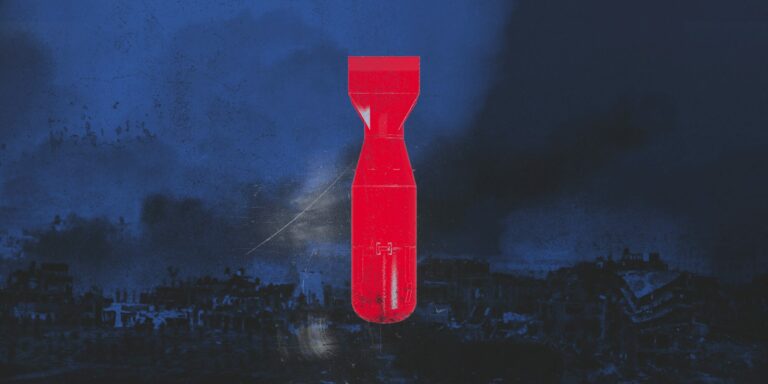Mohamad Jabali’s film, Life is Beautiful, resonates with Federico Fellini’s masterpiece La Dolce Vita (1960), despite not sharing many common elements, except maybe for some profound philosophical interpretations.
Unlike Fellini’s movie, Jabali’s film is an autobiographical documentary. While Fellini’s protagonist, Marcello, is a journalist trying to figure out the course and meaning of his life as an aspiring novelist who eventually quits on his dream, Jabali is at the center of the documentary, telling his own story as an aspiring filmmaker trying to survive the realities of life in Gaza, his birthplace, and Tromso, a small town in Norway where he was hosted by Hermann Grueu, the head of Norway’s Nordic Film Festival.
Jabali’s Life is Beautiful, which won him the prestigious Best Director award at the International Documentary Film Festival in Amsterdam (IDFA), is everything an outstanding documentary film should be: raw, deep, personal, and expressing an important message.
The power of Jabali’s film is in its genuinity.
In the documentary, there is no outstanding cadrage, exceptional imagery, or incredible script. But there is an avalanche of powerful emotions; life is caught as it is, with no filters. As it shouldn’t be and as it should.
IDFA is a documentary film festival at the end of the day, and I didn’t expect there would be a debate around calls for a ceasefire.
Jabali captures the small details of his daily life as he fights to legalize his residence in Norway without seeking asylum, as doing the latter would force him to give up on his Palestinian nationality. Through this storyline, Jabali presents a powerful and deep description of what life in Gaza has been for years, for those who left it and those who stay within its walls.
From the first moment of the documentary, Jabali’s voice is captivating.
His tone is a unique melange of melancholy and playfulness.
The language is simple, but very poetic, depicting images of “dreams carried” to pass through the “gate” of Gaza and its “only crossing” to the world.
In his script and throughout the film, Jabali is addressing his mother, who along with the rest of the family, is back in the Strip.
The last scene portraying their reunion after seven years of forced absence is beyond powerful: it is one of those moments where a simple, raw hug in a documentary beats any elaborate work of fiction.
The documentary, which took six years to make and whose international version was still being edited until a week before its premiere in Amsterdam, starts on a snowy day in Norway, with Jabali trying to manage his movement on handmade Nordic skis, creating a sense of not only familiarity but also adeptness with the cold weather, which is one of the main reasons behind mental health issues that migrants like Jabali, who come from warmer countries, often suffer from.
Yet, a laughing and carefree Jabali surrounded by friendly faces makes it clear that no matter how cold the weather was, his spirits remained high in the presence of good company.
The warmth exuding from the lovely surroundings of his host family does not persist for long, as it is violently interrupted by legal challenges such as the Norwegian state refusing to extend his visa and the closing of the Rafah crossing, obstructing his return to Gaza.
A life in limbo follows as he fights a legal battle to win the right to reside in Norway while moving from one European film festival to another to show an older film of his, Ambulance, which is another award-winning documentary that Jabali shot during the 2014 Israeli war on Gaza while accompanying medical rescue teams roving around the dangerous parts of the city.
The relevance to the current situation is beyond overwhelming, and that too gave the film a lot of its power. Only hours separated the screening of Life is Beautiful in Amsterdam and the bombing of Al Shifa hospital, another reminder that what’s happening in Gaza currently might be exceptional in its scale but not in its occurrence.
The movie’s first showing had a full house and ended in a standing ovation that lasted for minutes. Jabali spoke very shortly about pain and left it at that. I, like most people in attendance, was out of words. I queued with others, hugged him, said thank you and left.
Controversy at IDFA
The selection of Jabali’s film for the Best Director Award is especially important as it comes amid a controversy that started on the first day of the festival when, during the opening ceremony and while the festival’s Director Orwa Nyribieh was giving his speech, activists took the stage holding a banner on which the slogan “From the River to the Sea Palestine will be Free” was written in bold letters.
Criticized by leading figures from the Israeli film industry that expressed “uttermost dismay, disappointment, and concern” for allowing what they considered an anti-semitic slogan to be celebrated at the festival, IDFA’s management issued a statement in which Nyribieh said he clapped “to welcome freedom of speech and not to welcome the slogan,” leading some Palestinian participants in the festival to withdraw their films.
According to Mohanad Salahat, Director of the Palestinian Film Institute, the institute issued a statement in objection to IDFA’s position but the participating films had the choice to stay or withdraw.
I missed the opening session but was there in the following days and heard a lot about what went on. On the day of my arrival, and before hearing the details about what had happened, I wasn’t surprised to see protestors walking inside the International Theatre of Amsterdam chanting for a ceasefire in Gaza.
This is a documentary film festival at the end of the day, and I didn’t expect there would be a debate around calls for a ceasefire.
Around Amsterdam, posters stating that even wars have rules consolidated my initial thoughts, but that didn’t last long, and I was soon made aware that nothing should be taken for granted.
Analyzing what is happening in cultural and artistic scenes around the world is a conversation that undeniably needs to be made, and I, like many others, believe that there’s a genuine need for deep and honest conversations where the tough questions are raised and addressed.
These kinds of conversations cannot however happen when innocent people are being killed in Gaza in total violation of every possible international law. The fact that some participants in a documentary film festival can be against calls for a ceasefire and find the audacity in announcing their dismay and provocation by slogans and words that –regardless of any controversies or interpretations– have been protected under freedom of speech laws by European courts, is, to me, a stunning and crushing reality.
That too should be at the heart of the conversations we must have.
In Amsterdam, my only thought is how important it is that the whole world , not just festival audiences, watch Jabali’s Life is Beautiful, because in a moment of complete despair and helplessness, it brings something far more needed than just hope.
Fellini may have made a timeless work of fiction, but Jabali’s documentary brought Truth to the world.







